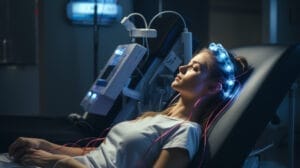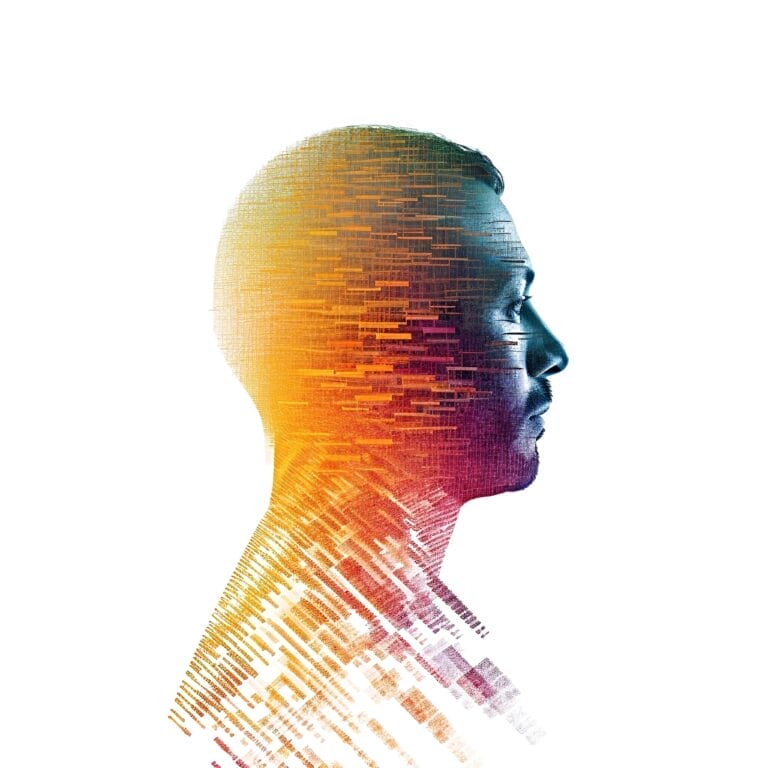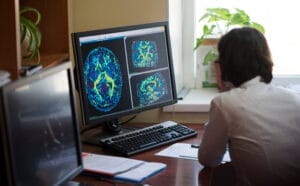
Begin a transformative journey with Transcranial Magnetic Stimulation (TMS) Therapy in Los Angeles. This cutting-edge, FDA-approved treatment offers new hope for individuals who are struggling with treatment-resistant depression [1]. According to a study published in the Journal of Clinical Psychiatry, TMS Therapy has proven a response rate of 58% in patients with TRD [2]. Our TMS Therapy Los Angeles is covered by most insurance plans and is a non-invasive procedure, making it a breakthrough in mental health care. TMS therapy provides a path to recovery that many people have been seeking for a long time.
In the bustling heart of Los Angeles in Larchmont, TMS Therapy emerges as a modern solution for persistent mental health challenges. For those whose paths to healing have been blocked by the limitations of traditional treatments, Transcranial Magnetic Stimulation in LA provides a much-needed alternative, targeting the neurological roots of mood disorders with precision and care.



Each individual’s journey with TMS Therapy in Southern California is unique. Our clinic in Los Angeles prides itself on offering:
Call or fill out our online form to begin your journey toward mental wellness. Our team will provide a free consultation to discuss your needs and coverage options.
Once you’ve connected with our team, we help you schedule your arrival at our treatment facility. Our admissions team will help with any challenges or questions you may have to ensure a smooth start to your treatment
Upon arrival, you will work with our clinical and medical teams to design a personalized treatment program tailored to your specific needs and goals.
Begin your personal therapeutic journey toward wellness with our world class team of care specialist.




80%
of patients experience relief from depression through TMS Therapy

While TMS Therapy has been transformative for many, addressing concerns and providing accurate information is essential. Misconceptions like “TMS ruined my life” highlight the importance of a thorough assessment to determine if TMS is the right choice for you. No therapy is a “one size fits all” solution in mental health, so though TMS may not have worked for some, it does not mean it has not helped countless others [4]. Our dedicated team is committed to understanding your unique needs and ensuring TMS Therapy is a suitable and promising option.
The protocol at our Los Angeles TMS Therapy center adheres to the highest safety standards. This approach has been rigorously tested for safety and effectiveness, ensuring a reliable path to mental wellness without significant or long-lasting side effects.
Informed decisions lead to better outcomes. Call today and assess for yourself if TMS Therapy is right for you.
TMS (Transcranial Magnetic Stimulation) therapy is a non-invasive treatment that uses magnetic fields on the brain to improve symptoms of various mental health challenges. It’s typically used when other treatments haven’t been effective. TMS therapy involves delivering repetitive magnetic pulses, and it’s considered safe and well-tolerated with few side effects.
Yes, TMS therapy is effective for many individuals with various mental health challenges, particularly those who have not responded to traditional treatments like medication and psychotherapy. Studies indicate that TMS can significantly reduce symptoms, with many patients experiencing a meaningful improvement in their overall quality of life. However, it’s important to consult our team to determine if TMS is a suitable option for your specific condition.
The cost of TMS therapy can vary widely. Some insurance plans cover TMS therapy, which significantly reduces costs. It’s important to check with Conscious Health’s team for specific cost information and insurance coverage options.
Yes, TMS therapy is considered safe and has been approved by the FDA for the treatment of depression. It’s a non-invasive procedure with minimal side effects. TMS is considered safe when administered by a trained professional following established guidelines. As with any medical treatment, discussing potential risks and benefits with our team at Conscious Health is important to determine if TMS is right for you.
The duration of the benefits from TMS varies among individuals. Some patients may experience relief from their depression symptoms for several months to a year or more after completing a course of treatment. Others might require periodic “maintenance” sessions to sustain the benefits. The initial course of TMS typically involves sessions five days a week for 4-6 weeks, but the lasting effects depend on the individual’s response to therapy, the severity of their symptoms, and their overall mental health. Follow-up sessions can be tailored to meet the patient’s needs based on how they respond to the initial treatment. To learn more, contact our team for an assessment and to begin the treatment.
TMS is primarily used for the treatment of major depressive disorder, but research into its effectiveness for anxiety is promising. Studies show that TMS can reduce symptoms of anxiety, especially in individuals who experience anxiety alongside depression. The therapy might help by targeting the parts of the brain associated with anxiety.
Yes, TMS therapy is a legitimate medical treatment. It has been approved by the FDA for treatment in the United States. TMS has been the subject of extensive clinical research demonstrating its effectiveness in reducing symptoms. As with any medical treatment, it’s essential to consult with healthcare professionals to determine if TMS is appropriate for you.
No, TMS therapy is not the same as electric shock therapy. TMS uses magnetic fields to stimulate specific areas of the brain involved in mood regulation without causing a seizure or requiring anesthesia. It’s a non-invasive procedure where the patient remains awake and alert throughout the session.
Concierge Service
A better you
Day-to-day encounters and social pressures can sometimes take a toll on anyone’s mental health. Our team at Conscious Health & Wellness Center recognizes the significance of offering specialized care for those facing challenges to their mental well-being.
Request a confidential call back by filling out this form.
While you’re waiting for one of our team members to reach out to you, take a look through our website and familiarize yourself with Conscious Health, our mental health services and what we treat here in Los Angeles, California.

(818) 873-2893
516 N. Larchmont Blvd.
Los Angeles, CA 90004
Join our newsletter to receive your complimentary Sleep Hygiene Guide and to learn about our upcoming events!